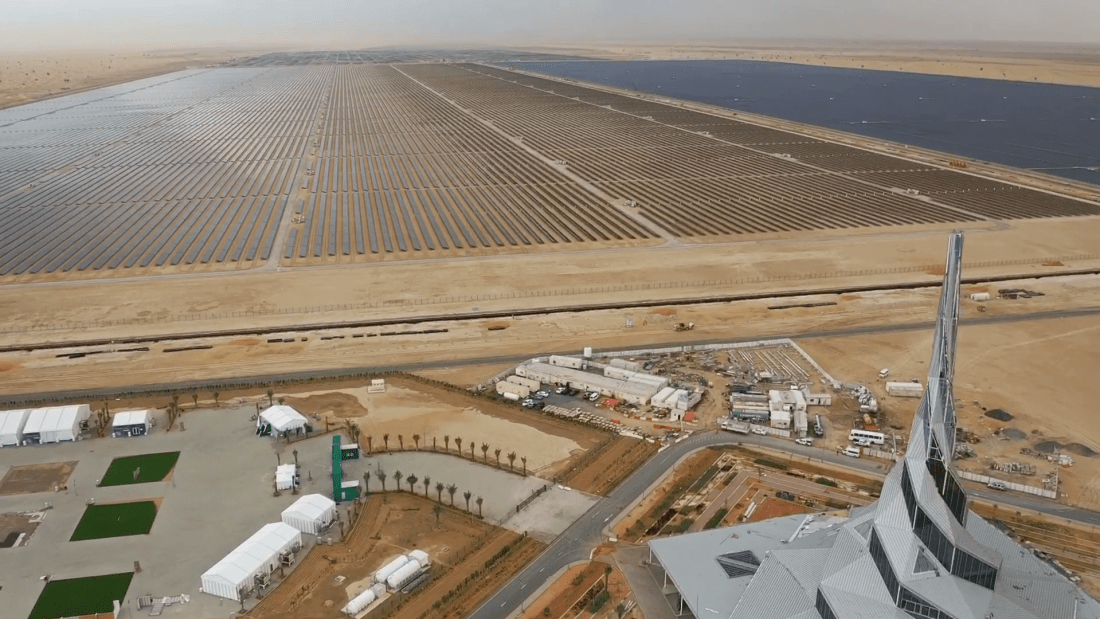Under the Arabian sun, a monumental construction effort is making headway. Located deep within Dubai's desert interior, the Mohammed Bin Rashid Al Maktoum Solar Park -- named after the emirate's ruler and the UAE's vice president and prime minister -- continues to grow and has just passed another milestone.
In its eighth year of development, satellite images give a sense of scale already: miles of photovoltaics arranged along neat east-west lines, their uniformity at odds with the creases and crinkles of the sands surrounding the energy plant. Once finished, Dubai Energy and Water Authority (DEWA) told CNN the 50 billion-dirham ($13.6 billion) investment could power as many as 1.3 million homes, reducing carbon emissions by 6.5 million tonnes annually.
First announced in 2012 and with a scheduled completion date of 2030, the 5,000-megawatt solar park will take three times as long to finish as the Burj Khalifa. Phases one and two, which are already complete, comprised 2.3 million photovoltaic panels with a capacity of 213 megawatts. Phase three, deep in construction, adds over 3 million photovoltaics and another 800 megawatts, and will be completed in 2020, say DEWA.
But after years of spreading out across the desert floor, the solar project is now rising upward with phase four -- perhaps the most ambitious development yet.
After breaking ground in March 2018, the base is now complete for what DEWA claims will be the tallest concentrated solar power (CSP) tower in the world.
It will use mirrors called heliostats to focus sunlight at the top of the tower, in order to heat up a flow of molten salts. The heat is used to power steam turbines, generating electricity.
"Typically, CSP will have efficiencies which are slightly higher than photovoltaics (PVs)," Christos Markides, professor of clean energy technologies at Imperial College London, told CNN. CSP stores energy as heat rather than in batteries. "Thermal energy storage is something like 10-times cheaper than electrical energy storage," he explained. "That gives that particular technology an advantage."
Practically speaking, it means CSP can continue to create electricity even without the sun and well into the night. Dubai's tower can store heat for 15 hours and will be able to provide power 24 hours a day, said DEWA. The CSP tower will top out at 260 meters (853 feet) when completed, DEWA added, and will be surrounded by 70,000 heliostats.
SOURCE: CNN

